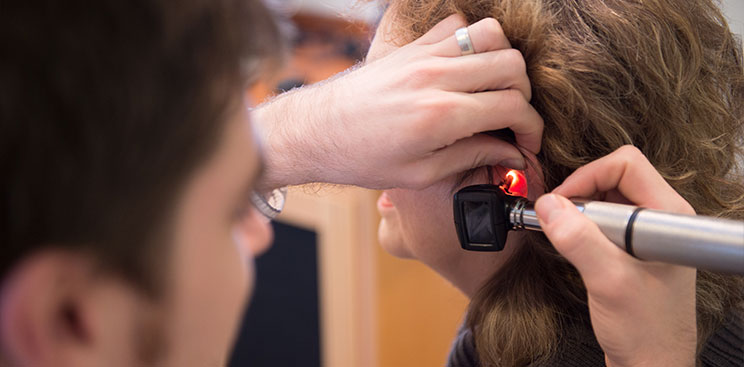
Hearing loss is not usually a big deal for those who have mild forms of hearing damage. These people often feel like they can go about their normal lives by making do with whatever hearing they have left. They often use compensatory techniques such as turning their good ear to listen to people, nodding and smiling even when they didn’t hear what was said, and changing topics when they feel lost in conversations. These techniques are not only unhelpful; they can actually be detrimental towards your overall health.
People with untreated hearing loss are prone to sustaining injuries due to falling. They are also more susceptible to depression and anxiety. Hearing loss also increases the chances of developing dementia, diabetes, and cardiovascular disease.
With so many serious side effects of not treating hearing loss, one would think that people would be keen to treat it at its earliest. Sadly, the National Institute of Health reported that out of the whopping 36 million Americans who have hearing loss, only around 7 million of them use hearing aids!
Studies show that those who wear hearing aids actually show improvements in their cognitive abilities. They also have a higher satisfaction with their lives as a direct result of using hearing aids. The quality of their personal and professional relationships improves, and they are even able to earn to their true potential. What is more, they have lower health risks, are generally safer and endure lower medical costs.
Using hearing devices has been shown by research to be beneficial and various other personal and professional aspects. Why then are people so aversive towards treating their hearing loss using hearing aids? Here are some possibilities.
Denial is a strange phenomenon, where the mind wants to safeguard what the heart already knows to be false. None of us want to look or feel old and admit that our bodies do not function as well as we would like. We may be unable to accept that our ears are not doing their jobs properly, and we may not be ready to accept this reality in front of others by using hearing aids.
People may deny having hearing loss because of their own preconceived notions about themselves. Those who have always been outstanding at everything; work, studies, and personal relationships, can often have a harder time accepting that their ears are failing them since they are not used to failing. Conversely, people with low self-esteem may also not want to wear hearing aids since it would be yet another blow to their already low self-esteem.
We often associate hearing loss with the elderly, which is obviously no longer true. Even so, many of us feel that if we wear hearing aids, we would look old before our time. By avoiding the fact that we need hearing aids, we are actually wasting precious time and putting ourselves and our families at risk.
People with untreated hearing loss have a 30% higher chance of developing depression. They also have a 24% higher likelihood of developing dementia. These people are also thrice as likely to endure serious injuries due to falling as a direct result of hearing loss.
The cost of not getting hearing aids is much higher than the cost of getting them, beyond the shadow of a doubt. While a pair of hearing aids can cost you a few thousand dollars, the cost of avoiding them can add up to medical bills of as much as $30,000 in a year! People with untreated hearing loss are more likely to be hospitalized and readmitted for the same conditions due to substandard care received as a result of their hearing loss.
Hearing loss is a nuisance not only to you, but to those who love you as well. It affects your personal relationships and your ability to communicate with your loved ones. The only way to deal with it effectively is to get hearing aids. Talk to your audiologist about getting hearing aids today.
